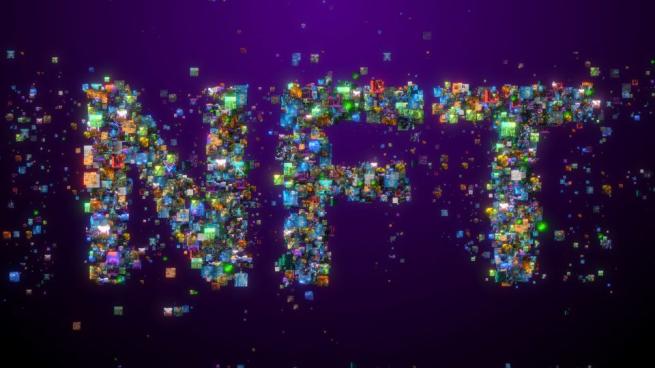Non-fungible tokens (NFTs) are providing more value and utility than as simple collectibles, and the retail industry is taking notice. Retailers are using NFTs and gamification to reach digital natives, build a loyal customer base, and impact the customer experience in meaningful ways.
Here are some of the creative concepts they enacted that are paving the way for NFT gamification in the retail industry.
Retailers have started making “wearable” NFTs and building digital outlets for virtual worlds a.k.a. metaverses. Walmart is experimenting with shopping in the metaverse as a good opportunity to get ahead in their industry and take control of this growing market in the near future. Using metaverses and NFTs to make digital duplicates of real-world SKUs and establishing stores in the metaverse, enables retailers to engage directly with their customers, as well as enhance and personalize their shopping experiences.
These fun activities and interactive experiences within virtual outlets — more often accessible with the use of virtual reality or augmented reality devices — are, in a way, the start of the gamification of NFTs.
From being solely a collectible, NFTs can also become a tool to play games with or be an in-game drop or reward. Gamifying NFTs offers experiences to customers that would attract them into buying, thus enhancing retail sales.
An example is Louis Vuitton with their Louis the Game. Through “Vivienne,” players can embark on a journey across locations to search for 200 collectible NFT candles to celebrate LV’s 200th Birthday, where each candle unlocks stories about the history of Louis Vuitton. The luxury fashion retailer created the game with attracting younger markets in mind, and is now expanding the game with more levels and NFT raffles as downloads hit more than 2 million. The company reported higher than expected sales due to its active marketing efforts tapping into pent up demand for goods.
One thing to remember is that gaming has evolved to newer and more superior technologies. When looking to gamify with NFTs, it would pay for retailers to focus on authenticity and creativity of the content. Whether using NFTs as a mechanism for games, or offering them to players as rewards, NFT gamification is a novel way to engage and bring excitement to new, future and existing customers.
Retail loyalty programs are also taking strides through NFT and games. This is what ShiftPixy did when it applied web, in-app gamification and augmented reality (AR) into their NFT Loyalty Program for their food retail business. Holders of Shiftpixy NFTs can play in-app games to win rewards and free food items, as well as make use of an AR experience to order and view a 3D menu that brings each food to life with hyper-realistic interactive features.
In the apparel industry, Gap and LookHUMAN also incorporated gamification elements to amp up their loyalty programs. Gap launched a collection of NFTs based on Gap’s signature hoodie designed with art themes around positivity and equality. The NFTs come in four tiers based on pricing and availability: common, rare, epic, and one-of-a-kind. When acquiring common and rare tokens, holders get the chance to win epic-level NFTs and a physical Gap x Frank Ape hoodie.
LookHUMAN likewise executed this through launching their t-shirt NFTs called RFTees. RFTees are free for every customer’s purchase of LookHUMAN products. LookHUMAN is trying to offer value in terms of savings and rewards, as RFTees holders can enjoy potential cash rewards or special prizes such as free T-shirts for future purchases.
By gamifying loyalty programs, these companies are finding ways to connect and strengthen their customer base, give them real value for their patronage, enhance their customer experience, and possibly attract new customers from different market segments.
Retail ecommerce platforms are also venturing into NFTs and applying fun gamification elements in a bid to excite their customers. E-commerce company Shopify has recently partnered with Doodles, a hand-drawn NFT art collection, to release the pastel-colored NFT art “from URL to IRL (in real life)”. They launched an online marketplace website where anyone — whether they are NFT holders or not — can purchase physical mascot versions of the Doodles NFTs. Token holders can also enjoy exclusive access to purchase a limited edition mascot figure and get promo codes to use on Shopify. On top of that, Shopify also gave away one Doodles NFT to a lucky winner who followed Shopify and Doodles Twitter accounts and retweeted their tweets.
E-commerce giant eBay allowed the sale of NFTs in 2021 which ushered new creators, buyers, and sellers in its platform and opened the possibilities for e-commerce to cater to the NFT market and also become an NFT marketplace. After that bold move, eBay is now releasing their first NFT collection with Sports Illustrated and the National Hockey League (NHL), composed of 13 digital collectibles featuring 3D animated renderings of Gretzky as a digital action figure. The collectibles retail at $10 for the basic green rarity, and range up to $1,500 for the diamond tier NFTs.
By diving into the world of NFTs, Shopify and eBay are exploring innovative ways to give more value to their new, existing and future markets, which are increasingly becoming occupied by the younger GenZ audience.
Currently, retailers with metaverse, NFTs, and gaming operations are mostly the big companies. Small- and medium-sized retailers need to be more involved in using NFT and gamification to explore new market groups, build loyal customers, and drive engagement, experiences, and sales. As blockchain technology grows and matures over time, more and more companies are taking advantage of the opportunities of this space, indulging the evolving consumer appetite and trends in various industries in 2023 and beyond.
—Cory Hymel, Director of Blockchain, Gigster
Author
Administraroot


